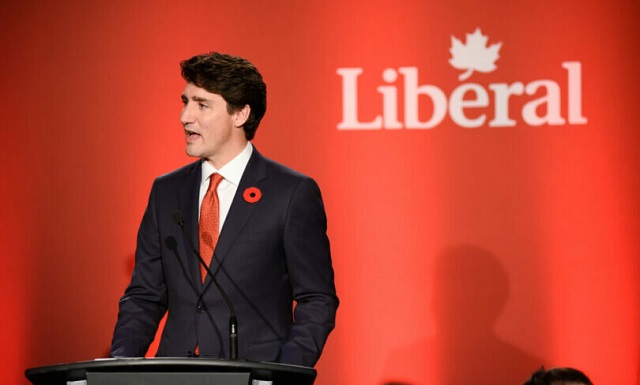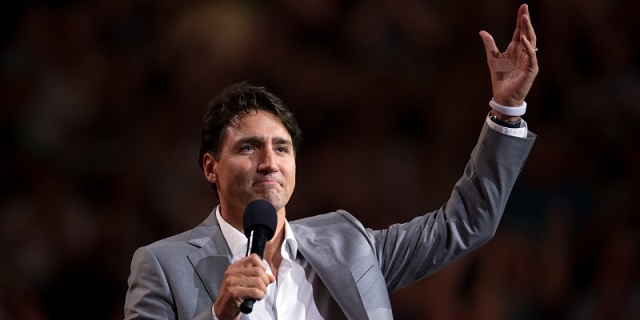Opinion
Words are not violence – Why Will Smith was wrong to strike Chris Rock.

This article submitted by Levi Kump
It is news to exactly no one, that Sunday night, Will Smith responded to a contentious, and arguably tasteless joke, by walking on stage at the Acadamy Awards and slapping the the offending party, one Chris Rock, across the face. Much has been made already about whether or not the incident was staged, though the ensuing furor has rendered that debate largely moot. Many people have chimed in on the issue, some saying the Smith was unequivocally wrong, and some, including no less than The National Post’s Barbara Kay, coming down on the the side of a face slap being fair play.
Let it be known, I believe Smith and Kay, are both wrong. First and foremost, because one of the tenets of civilization in general, is the old adage that, “ones right to get angry, stops at the next fellow’s nose”. Nothing new here. Setting aside for a moment that the slap was to the cheek/jaw area, I believe that notion still holds water. Genuine or not, this incident implies that there are some statements for which the only possible rebuttal, is the fist. The challenges with this way of thinking are legion, and until only a few years ago, seemed to have already been worked out in western society. Not the least of said problems is this: if words are violence itself, and answerable as such, then we no longer have any reason to use words. When one equates the verbal with the somatic, it is a very quick descent indeed, to using violence in any given situation. Why struggle for the ‘mot juste’, when one can move stright to a head kick?
Following this line of reasoning, we end up back, hundreds of years, to the time of, “might makes right”; which again, our civilization had once worked out, but now seems to be forgetting. One of the more common lines of reasoning for the “speech as violence” crowd, is that disparities in power give far more weight to some people’s words, than others. In the Smith/Rock debacle, this is hardly worth a mention, as both men are of the same demographic, read: multi-millionaires of the same skin tone. Though there are those who will point out, as did Barbera Kay, that the target of Rock’s joke, was not Will Smith himself, but rather his wife, Jada, who does in fact suffer from an auto immune disease, and whose hair loss is by no means her own fault. A powerful comedian making jokes about a/an (equally powerful?) woman’s physical condition should be off limits, or so goes the argument. The easy reply here is that there are
those, myself among them, who do not believe that anything should be off limits in speech.
Noting here that, not unlike our separation of words and action, society did away with the idea of ‘lese majest’ some time back. There are yet some who do not believe in this, and who think that the relative power of two parties (and exactly how do we quantify this?) matter to a verbal exchange. That the words of the more powerful party are in fact so weighty, that again, the only fair response, is a physical one. This begs the question, that if the words of the powerful are
unfairly weighted, how much more so are thier blows? It is to me, an untenable position. Slapping a man for speech only ends badly for everyone. Until very recently, we all seem to have understood this.
There was once a common convention, that words, for all their power, are clearly not violence. The fact that this is now somehow considered up for debate, does not bode well for society writ large. Any reasonable person will admit that words can be incredibly hurtful, damaging, and cruel. To deny this is foolish. Physical violence however, has all those dangers, along with a side order of split lips, contusions, and concussions. Indeed, whatever “damage” one suffers from words, one is still left with the ability to speak in rebuttal. A solid blow of any kind can not only dissuade retort, but neuter it completely. Perhaps this is what the proponents of violent response are after in the first place? If so, its disappointing. As I said, i thought we had worked this out.
Levi Kump is a former competitive international Muay Thai champion.
National
Anger towards Trudeau government reaches new high among Canadians: poll

From LifeSiteNews
A recent Nanos research survey found that ‘Pessimism and anger remain the top emotions Canadians say best describe their views of the federal government in Ottawa.’
Canadians’ anger towards Prime Minister Justin Trudeau and his Liberal government has reached a record high, according to a new poll.
According to a national survey published by Nanos Research this month, 31% of Canadians feel anger and pessimism towards the Trudeau government, which marks an all-time low in satisfaction for government leadership.
“Which of the following feelings best describes your views of the federal government in Ottawa?” the poll questioned.
In addition to the 31% feeling angry and pessimistic respectively, 11% feel uninterested, while only 1% and 10% feel satisfaction and optimism, respectively. 6% were unsure of their feelings towards the Trudeau government.
“Feelings of anger toward the federal government have increased or held steady in every region, with the largest increases among residents of Quebec (December: 12%; March: 24%) and Atlantic Canada (December: 21%; March: 38%). Pessimism and anger remain the top emotions Canadians say best describe their views of the federal government in Ottawa,” the research found.
In recent months, Trudeau’s popularity has plummeted, with polls projecting a massive Conservative victory in the upcoming election.
Trudeau’s popularity has been falling and his government has been embroiled in scandal after scandal, one of the latest being a federal court ruling that the prime minister’s use of the Emergencies Act to end the 2022 Freedom Convoy was “not justified.”
Even top Liberal party stalwarts have called for him to resign.
Indeed, Canadians anger and dissatisfaction with Trudeau has become a topic of conversation on many social media platforms, with Canadians detailing how the Trudeau government has made their life less affordable.
Numerous videos are being uploaded to social media by Canadians explaining that they struggling to make ends meet amid the rising cost of living and Trudeau’s ever-increasing carbon tax, while many immigrants are telling others not to come to Canada.
Frontier Centre for Public Policy
Budget 2024 as the eve of 1984 in Canada

From the Frontier Centre for Public Policy
Those who claim there are unmarked burials have painted themselves into a corner. If there are unmarked burials, there have had to be murders because why else would anyone attempt to conceal the deaths?
The Federal Government released its Budget 2024 last week. In addition to hailing a 181% increase in spending on Indigenous priorities since 2016, “Budget 2024 also proposes to provide $5 million over three years, starting in 2025-26, to Crown-Indigenous Relations and Northern Affairs Canada to establish a program to combat Residential School denialism.” Earlier this spring, the government proclaimed:
The government anticipates the Special Interlocutor’s final report and recommendations in spring 2024. This report will support further action towards addressing the harmful legacy of residential schools through a framework relating to federal laws, regulations, policies, and practices surrounding unmarked graves and burials at former residential schools and associated sites. This will include addressing residential school denialism.
Like “Reconciliation,” the exact definition of what the Federal government means by “residential school denialism” is not clear. In this vague definition, there is, of course, a potential for legislating vindictiveness.
What further action is needed to address “the harmful legacy of residential schools” except to enforce a particular narrative about the schools as being only harmful? Is it denialism to point out that many students, such as Tomson Highway and Len Marchand, had positive experiences at the schools and that their successful careers were, in part, made possible by their time in residential school? If the study of history is subordinated to promoting a particular political narrative, is it still history or has it become venal propaganda?
Since the sensational May 27, 2021, claim that 215 children’s remains had been found in a Kamloops orchard, the Trudeau government has been chasing shibboleths. The Kamloops claim remains unsubstantiated to this day in two glaring ways: no names of children missing from the Kamloops IRS (Indian Residential Schools) have been presented and no human remains have been uncovered. For anyone daring to point out this absence of evidence, their reward is being the target of a witch hunt. As we recently witnessed in Quesnel, B.C., to be labeled as a residential school denialist is to be drummed out of civil society.
If we must accept a particular political narrative of the IRS as the history of the IRS, does our freedom of conscience and speech have any meaning?
To the discredit of the Truth and Reconciliation Commission, fictions of missing and murdered children circulating long before the Commission’s inception were subsumed by the TRC (Truth and Reconciliation Commission). Unmarked graves and burials were incorporated into the TRC’s work as probable evidence of foul play. In the end, the TRC found no evidence of any murders committed by any staff against any students throughout the entirety history of the residential schools. Unmarked graves are explained as formerly marked and lawful graves that had since become lost due to neglect and abandonment. Unmarked burials, if they existed, could be construed as evidence of criminal acts, but such burials associated with the schools have never been proven to exist.
Those who claim there are unmarked burials have painted themselves into a corner. If there are unmarked burials, there have had to be murders because why else would anyone attempt to conceal the deaths? If there are thousands of unmarked burials, there are thousands of children who went missing from residential schools. How could thousands of children go missing from schools without even one parent, one teacher, or one Chief coming forward to complain?
There are, of course, neither any missing children nor unmarked burials and the Special Interlocutor told the Senate Committee on Indigenous People: “The children aren’t missing; they’re buried in the cemeteries. They’re missing because the families were never told where they’re buried.”
Is it denialism to repeat or emphasize what the Special Interlocutor testified before a Senate Committee? Is combating residential school denialism really an exercise in policing wrongthink? Like the beleaguered Winston in Orwell’s 1984, it is impossible to keep up with the state’s continual revision of the past, even the recent past.
For instance, the TRC’s massive report contains a chapter on the “Warm Memories” of the IRS. Drawing attention to those positive recollections is now considered “minimizing the harms of residential schools.”
In 1984, the state sought to preserve itself through historical revision and the enforcement of those revisions. In the Trudeau government’s efforts to enforce a revision of the IRS historical record, the state is not being preserved. How could it be if the IRS is now considered to be a colossal genocide? The intent is to preserve the party in government and if it means sending Canada irretrievably down a memory hole as a genocidaire, so be it.
Michael Melanson is a writer and tradesperson in Winnipeg.
-

 Business1 day ago
Business1 day agoDon’t be fooled by high-speed rail
-

 Addictions1 day ago
Addictions1 day agoBritish Columbia should allow addicts to possess even more drugs, federal report suggests
-

 Business1 day ago
Business1 day agoUN plastics plans are unscientific and unrealistic
-

 Alberta1 day ago
Alberta1 day agoAlberta rejects unconstitutional cap on plastic production
-

 Censorship Industrial Complex1 day ago
Censorship Industrial Complex1 day agoAustralian politicians attack Elon Musk for refusing to remove video of Orthodox bishop’s stabbing
-

 Also Interesting1 day ago
Also Interesting1 day agoIs the Anger Toward Fiat Currency Justified?
-

 Alberta1 day ago
Alberta1 day agoActivity-Based Hospital Funding in Alberta: Insights from Quebec and Australia
-

 Fraser Institute1 day ago
Fraser Institute1 day agoCanadians should decide what to do with their money—not politicians and bureaucrats






